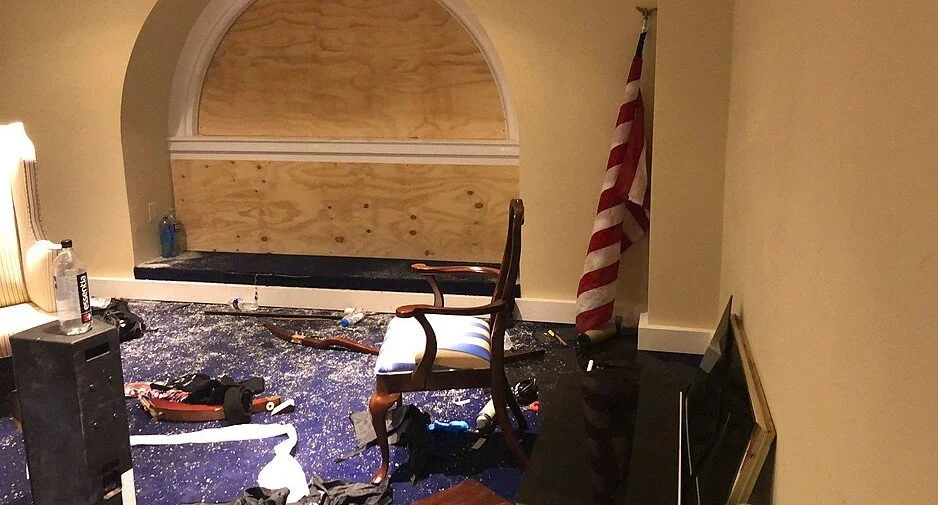Trump administration working to rewrite and whitewash American history at the Smithsonian Institution
When the Trump administration is not focused on unleashing polluting industries, rounding up and incarcerating immigrants, sending troops into our cities and limiting access to vaccines, another clear focus is an effort to rewrite our nation’s history.
Donald Trump has attacked historical narratives that he considers to be negative, including objective depictions of 250 years of slavery and of the genocide that was perpetrated against Native people as the West was “conquered.”
Exhibits at the Smithsonian’s 21 museums that pertain to racism or genocide may be destined for removal, or at least a substantial rewrite. Exhibits at national parks and monuments that might portray our history in a less-than-positive light may be slated for removal. Other targets of the Trump administration’s revision and outright censorship include the Library of Congress, the National Archives, and the National Endowment for the Humanities.
One of Trump’s early executive orders from the current term, issued back on March 27, was devoted to “Restoring Truth and Sanity to American History.” Under this broad umbrella, Trump supporters are encouraged to note any exhibit, placard or display that they believe presents a less-than-positive narrative. The Smithsonian exhibit that deals with Trump’s two impeachments during his first term has been taken down, and will be substantially rewritten.
The National Museum of African American History and Culture, which is a fairly recent addition to the Smithsonian complex, could be reduced to a few exhibits that display anodyne platitudes. Future historians who are looking for primary source material about slavery, Japanese internment camps during World War II, or the devastation of Native villages in Dakota Territory may have a more difficult search in the future.
It’s probably true that most American historians have a politically progressive bias. Ideally, our universities should allow a robust debate among various ideological perspectives. David Blight, who is a Pulitzer Prize-winning professor of American history at Yale University, has characterized Trump’s executive order as “nothing less than a declaration of political war on the historians’ profession, our training and integrity.”
It does not help matters that many of our leading universities have recently experienced the loss of federal grants that had already been awarded. Peaceful protests by students may no longer be allowed, and foreign students are increasingly unwelcome to study in America.
Kevin Roberts, a Christian Nationalist historian who insists that “our rights come not from courts or constitutions, but from God,” now enjoys a position of significant influence over an administration that is working to eliminate any narrative that disturbs its biases.
For his part, Blight has challenged Roberts and his allies to a national debate. Actually, a series of vigorous debates across the country among various ideological perspectives would be a healthy thing, and could enlighten some Americans whose perspective on what “made America great” might be somewhat limited.
Efforts by the Trump administration to censor our libraries, museums and national parks are inherently unhealthy and reek of totalitarianism.
Note: Some of the material in this piece was gleaned from an article by professor David Blight, “What if History Died by Sanctioned Ignorance?” which appeared in the New Republic on Aug. 7.
Jay Davis of Rapid City is a retired lawyer and a regular contributor to The South Dakota Standard.
Photo: The Smithsonian, public domain, wikimedia commons
The South Dakota Standard is offered freely and is supported by our readers. We have no political or commercial sponsorship. If you'd like to help us continue our mission to advance independent political and social commentary, you can do so by clicking on the "Donate" button that's on the sidebar to your right.







